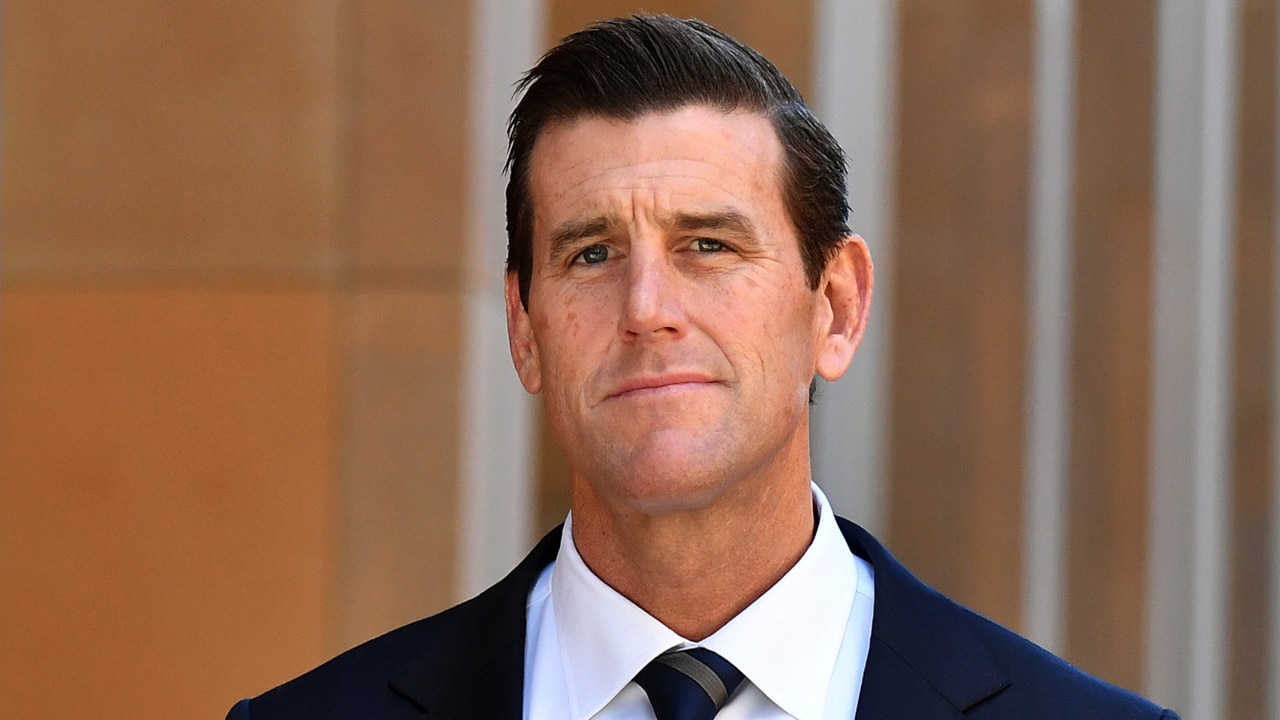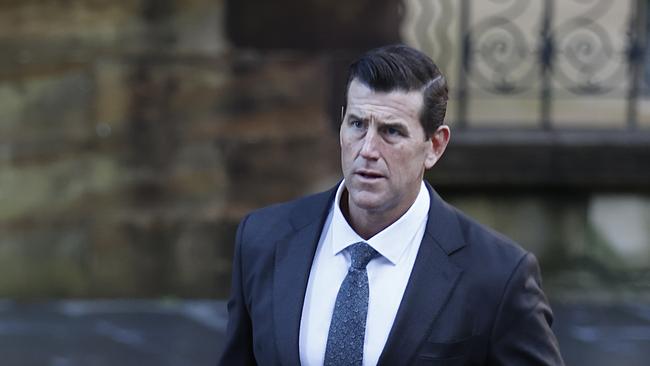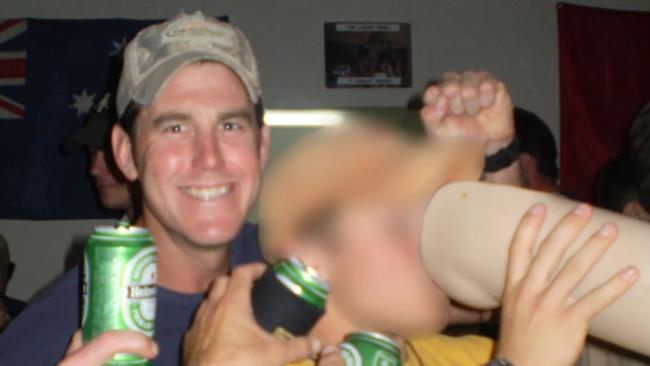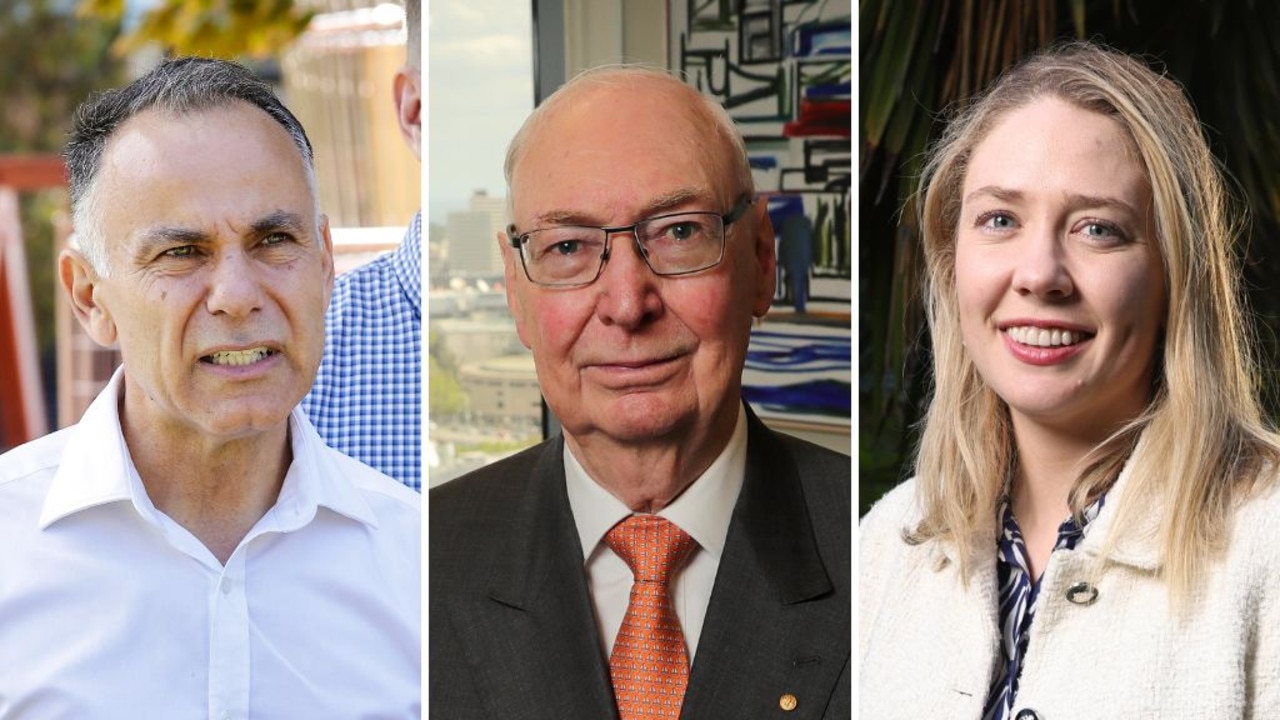Kerry Stokes and Seven to fight paying defamation costs to Nine after Ben Roberts-Smith defamation loss
Lawyers are chasing third-party costs from Kerry Stokes and Seven for funding war veteran Ben Roberts-Smith in his multimillion-dollar defamation trial.

Lawyers are chasing an order for third-party costs from Kerry Stokes and the Seven Network for funding decorated war veteran Ben Roberts-Smith in his multimillion-dollar defamation trial, which he lost against Nine Newspapers.
Earlier this month, Federal Court Justice Anthony Besanko ruled some of the imputations put forward across six articles by The Sydney Morning Herald, The Age and The Canberra Times were found to be substantially true.
The case is expected to have cost $25 million in legal fees.
Mr Roberts-Smith was dubbed an inconsistent witness with “motives to lie” in the scathing assessment by Justice Besanko, who dismissed the proceedings.
The matter returned to the Federal Court on Thursday where it was revealed Mr Roberts-Smith had agreed to pay the costs of the failed case in an indemnity basis from March 17, 2020.

“My client has sought a costs order against Mr Roberts-Smith,” Nine’s barrister, Nicholas Owens SC, told the court.
“Mr Roberts-Smith accepts he should pay costs of the proceedings … but it remains in dispute whether he pays prior to March 17, 2020, on an indemnity basis.”
It was also revealed the newspapers would apply to obtain a third-party costs order against the Seven Network for the costs the proceedings.
The company and its owner, billionaire media mogul Kerry Stokes, are expected to fight the application after funding the case in its early days before it was transferred to a loan from Australian Capital Equity, which Mr Stokes also owns.
Mr Roberts-Smith’s barrister, Arthur Moses SC, told the court he had until July 12 to file an appeal to the findings, but did not give an indication on whether he intended to do so.
Earlier this month, Justice Besanko in a monster 736-page judgment found that the newspapers had substantially justified imputations that Mr Roberts-Smith had unlawfully killed unarmed Afghan prisoners while serving with the SAS.
Mr Roberts-Smith and four of the witnesses he called were deemed “not honest or reliable” in their evidence about two of the murders.
“I have difficulty accepting the applicant’s (Mr Roberts-Smith) evidence on any disputed issue,” Justice Besanko said in the judgment.

The judge found the most serious imputations alleged in the articles had been proven and the newspapers upheld the defence of contextual truth for the remainder.
While not every murder allegation was established by the newspapers, the judge found the two key killings had taken place.
Mr Roberts-Smith’s actions on the mission to Whiskey 108 on Easter Sunday in 2009 were found to be substantially true, meaning he was found to have “frog marched” a man with a prosthetic leg out of a secret tunnel at the compound.
In his judgment, Justice Besanko found Mr Roberts-Smith had given a “highly improbable” account of events, riddled with “inconsistencies”.
Justice Besanko also found the murder of Ali Jan at Darwan in September 2012 to be substantially true, where Mr Roberts-Smith allegedly kicked the detained shepherd off a cliff while he was handcuffed.
He found Mr Roberts-Smith directed another soldier named Person 11 to drag the farmer and shoot him as he stood in the cornfield.
The judge also found the newspapers had proven a fourth murder, which was not in the articles but was argued in court as part of the defence.
Justice Besanko did not find Mr Roberts-Smith had committed domestic violence on a former mistress, but ultimately found it did not further harm his reputation given the findings of murder, and dismissed the case.
As well as being found by the judge to be a murderer, Mr Roberts-Smith was also found in the judgment to have “broken the moral and legal rules of military engagement and is therefore a criminal”.
The judge also found he disgraced his country and the Australian Army through his conduct.



